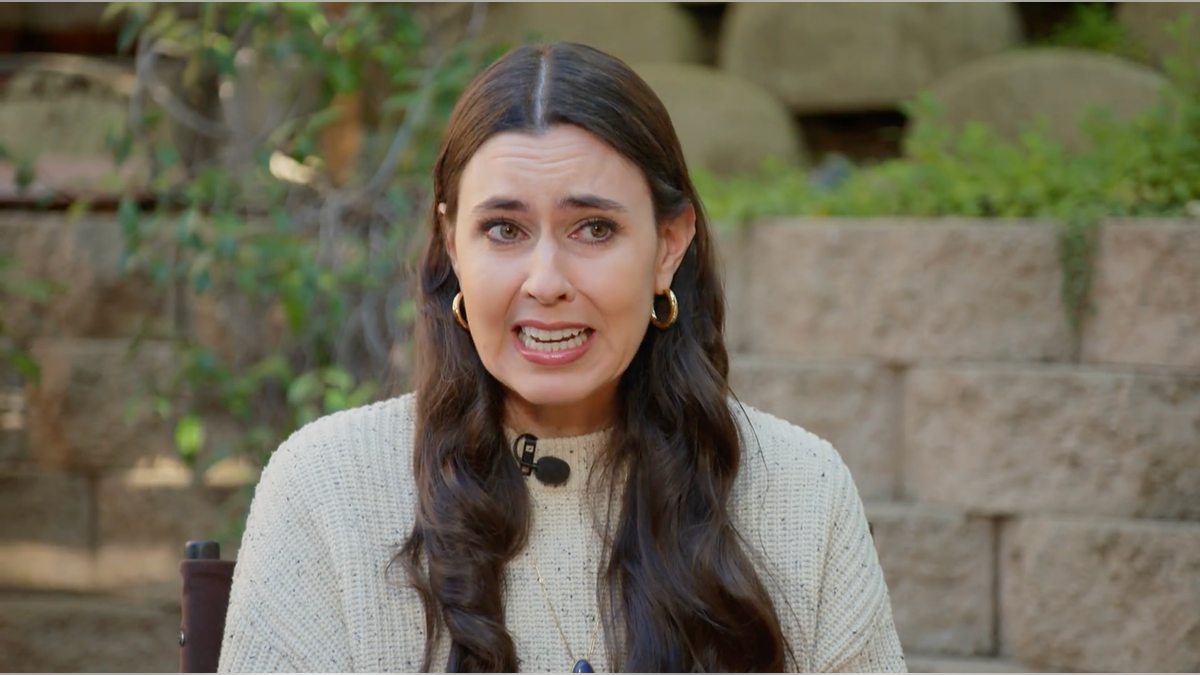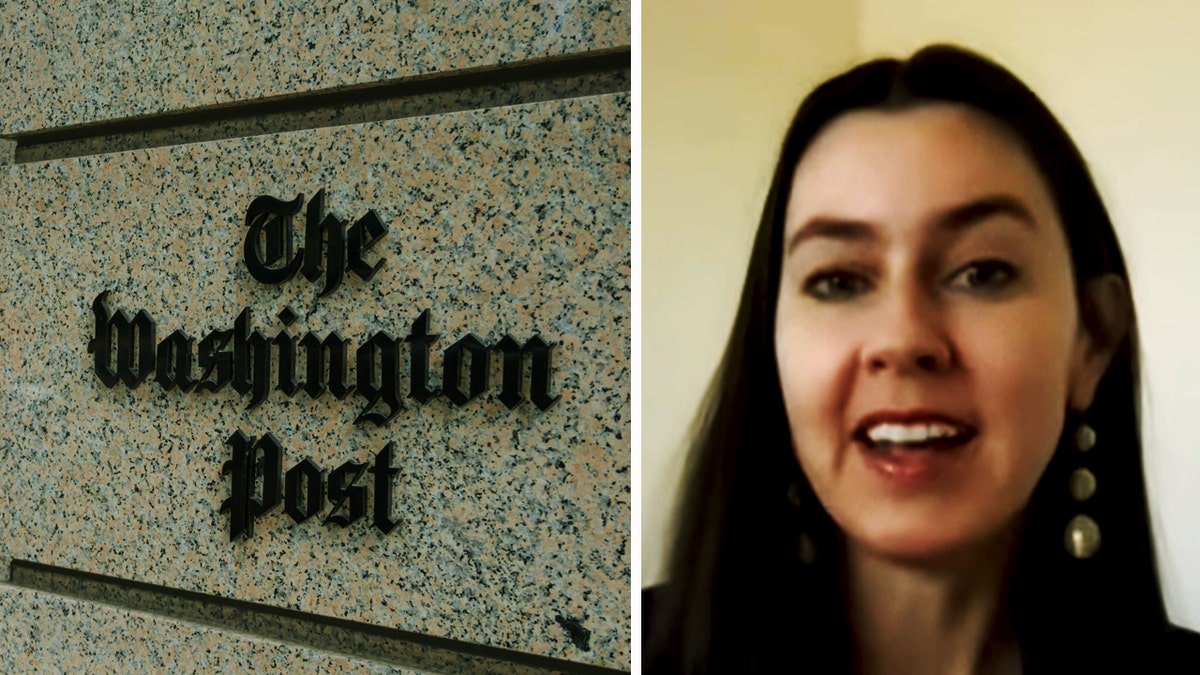Washington Post food fight a 'big time embarrassment': Howard Kurtz
'MediaBuzz' host Howard Kurtz reacts to the firing of Washington Post reporter Felicia Sonmez following days of Twitter attacks on the paper and colleagues.
There continues to be more fallout at the Washington Post over Taylor Lorenz's erroneous report that sparked uproar on social media.
The New York Times reported on Friday that Lorenz, the Post's "internet culture" columnist, is being "moved" from "the features staff to the technology team," according to sources from the paper.
Sources also allege that Cameron Barr, Washington Post's senior managing editor, was "asked" to "review her articles before publication."
Fox News asked the Washington Post if Lorenz's shift means she is now a reporter versus a columnist and whether that means she must curb her social media activity. Fox News also inquired if any other writers for the Post besides Lorenz must submit their work to Barr prior to publication. The Post declined to comment.
Lorenz told Fox News, "[For what it's worth] Cameron has always read my stories ever since I got here, he reads all big stories that go on the site. He's an awesome editor!! I love his feedback and working with him."
She echoed what she had previously stated publicly regarding the error in her report, which she insisted stemmed from "miscommunication" and that there are "bad faith campaigns" aimed to discredit her and the Post. Lorenz also maintains she is still a columnist and that her job "has not changed an ounce."
However, she did not directly answer many of Fox News' inquiries, including whether it was her choice to switch teams, whether any other writers have to submit their work to Barr before publishing, whether she sees that as a punishment and if there is such thing as valid criticism toward her work that isn't stemmed from a "bad faith campaign."

Washington Post columnist Taylor Lorenz was "moved" from the features staff to the technology team following her erroneous report, according to the New York Times. (MSNBC)
The controversy began with a story written by Lorenz about the online influencers who thrived during the explosive Johnny Depp-Amber Heard trial.
Lorenz's report alleged she had reached out for comment to two YouTubers, "LegalBytes" host Alyte Mazeika and an anonymous user named ThatUmbrellaGuy, both whom she alleged financially benefited from the courtroom drama. Both publicly denied that Lorenz had ever attempted to contact them. The claim was later removed without any sort of correction.
After Fox News reported on the stealth-editing, the Post issued multiple corrections.
By Lorenz's own admission in a lengthy Twitter thread, she only contacted the YouTubers "after the story went live," which contradicts the Post's latest correction claiming Lorenz attempted to contact Mazeika on Instagram prior to publication, something Mazeika has also denied.
The Times reported that her tweets "were discussed and agreed on by Ms. Lorenz and multiple editors before she posted."
In the tweets, Lorenz blamed her editor for including the erroneous statement, something she said was not written by her.
The editor, who was since identified as deputy features editor David Malitz, was reportedly offered a promotion prior to the incident and was later rescinded. Washington Post executive editor Sally Buzbee denied to staff that the reversal had anything to do with Malitz's mistake and that he was being punished for it but did not provide an explanation for her decision.

Washington Post senior managing editor Cameron Barr was "asked" to review every article Taylor Lorenz writes prior to publication. It is unclear if Barr must read the work of other writers. ( (Photo by Eric BARADAT / AFP) (Photo by ERIC BARADAT/AFP via Getty Images) | CNBC Television/YouTube/Screenshot)
Lorenz has long been criticized for her journalism ethics. In 2020, she repeatedly publicized the 15-year-old daughter of Trump aide Kellyanne Conway for the teen's outspoken TikTok posts and allegedly reached out directly to the minor without her parents' permission.
Conway recently torched Lorenz for obsessing over her daughter, referring to her as "Peter Pan."
In 2021, Lorenz falsely accused business tech entrepreneur Marc Andreessen of "using the r-slur," which she admitted was an error.
In April, she doxxed the identity of popular Twitter personality Libs of Tik Tok just days after she decried the online harassment of women during an interview on cable television.
QUESTIONS REMAIN AS TAYLOR LORENZ BLAMES EDITOR, ‘BAD FAITH CAMPAIGN’ OVER ERRONEOUS WAPO REPORT
Lorenz was ridiculed for her report in May alleging Nina Jankowicz, who was set to be the executive director of the Biden administration's so-called "Disinformation Governance Board," was the "victim" of "right-wing attacks" as the Department of Homeland Security was putting a pause on the initiative following weeks of backlash.
She was also forced to walk back a claim she was being "relentlessly" harassed by a so-called "Drudge Report editor," later claiming it was a "joke" and she found it "hilarious" that someone believed she could be harmed by the Drudge Report.

Taylor Lorenz has a long history of questionable journalistic ethics. (Photo by Jerod Harris/Getty Images)
The Washington Post has been facing a turbulent news cycle in recent days.
The paper was forced to issue an editor's note after a jury found that Heard's 2018 op-ed, which was revealed it had been written by the ACLU, was defamatory toward Depp, fueling questions over whether the Post bears any responsibility for publishing the article in the first place.
CLICK HERE TO GET THE FOX NEWS APP
There's also been public warfare among Post staffers with reporter Felicia Sonmez calling out colleague Dave Weigel for retweeting a joke that mocked women, which resulted in him getting suspended. Sonmez also clashed with fellow reporter Jose A. Del Real, who criticized Sonmez's public shaming of Weigel.








































